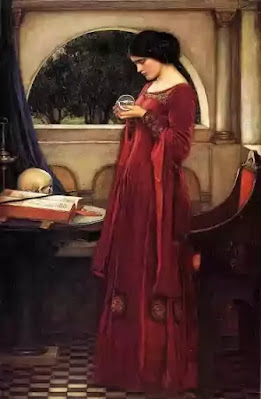Also Read
The literature of the Romanticism is a wonderfully rich and varied one. There is no standard literary form that the great writers of the age had not attempted with good, bad or indifferent success. Thus, poetry in its various species-lyrical, narrative, satiric; prose fiction - historical domestic and supernatural; essays -familiar and personal, critical, journalistic, each of these had an immense output and like the first Romantic period (the Elizabethan age), there is a flowering of the romantic genius. But "by nothing is England so great as by her poetry."
The chief of the claims of the Romanticism to remembrance lies in that it is the golden age of poetry, with a predominant bias for the 'lyric'. Though the romantic spirit had penetrated into fiction and produced a great Scott, in drama the romantic spirit signally failed to produce a great dramatic talent. Byron, Shelley wrote dramas but they were subjective and lyrical. Herein, lies the chief distinction between the two great ages of romanticism in English literature, though in other respects they are strikingly akin. Romantic lyrical poetry vies with and excels Elizabethan lyrics in variety of the themes, tone, structure and melody.
The great poets of the age were all lyricists of a high order. Wordsworth, the leader of the school and one of the, most egotistical of the group wrote lyrics not so much of innate emotions but of expressions of a reflective mood that is at once personal and general. In all his lyrics he sings of himself in relation to nature, in relation to the society, the ideals of the age, etc, and in these he has transmuted thought into feeling by a subtle poetical quality: His poems, great and small illustrate this quality. His lyrical rifts found a very congenial mode of expression in the sonnets, the most complicated of the lyrical forms and also in the odes. Coleridge wrote famous odes which touch the summit of lyricism. In lyricism Shelley is supreme. As Cazamian has said, "Never was the soul of a poet so spontaneously lyrical in the modem sense of the term, namely the immediate and complete vibration of a natural vocal sensibility in contact with the world" He was like a reed through which every gust of wind blew drawing a fine music. His odes are the greatest achievements of human genius Keats too reaches the height of lyricism in his odes which have not only deeply-felt emotion but also an element of thought. Byron, though the most egotistical of the romantic poets rather disappointingly meagre in lyrical gift. He wrote many sweet and delightful small lyrics but in them he is more sentimental than emotional and seems to be posing before the world. Thus there is an immense output of lyrics in this age which predominates over fiction and drama.
The reason for this rich flowering of lyrics in this age is to be sought in the main and dominant characteristic of the romantic temper namely its subjectivity. Indeed, romanticism has been sometimes defined "as the emancipation of the ego in man" and since the lyric is the most personal of all literary forms, it had its hey-day in this period. The romantic writers were lacking in objectivity; they could never forget themselves and cease to speak about themselves. This spirit penetrated even in the essays of the romantic writers. But the lack of objectivity or impersonality is fatal to the art of the drama and the fiction. Hence the poverty of the drama and fiction of the age (Walter Scott being excepted, he had both lyrical and narrative genius).
